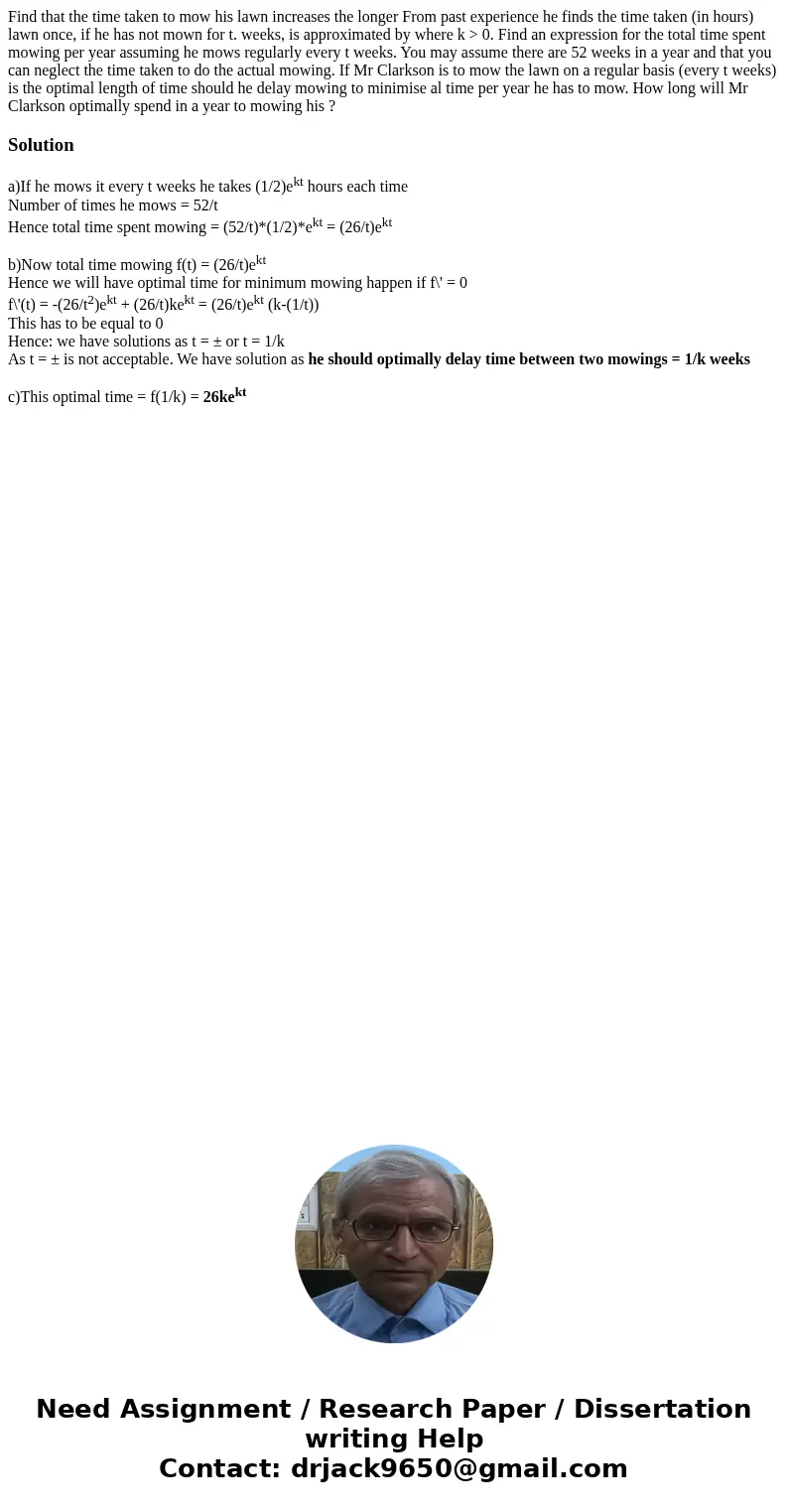Find that the time taken to mow his lawn increases the longe
Find that the time taken to mow his lawn increases the longer From past experience he finds the time taken (in hours) lawn once, if he has not mown for t. weeks, is approximated by where k > 0. Find an expression for the total time spent mowing per year assuming he mows regularly every t weeks. You may assume there are 52 weeks in a year and that you can neglect the time taken to do the actual mowing. If Mr Clarkson is to mow the lawn on a regular basis (every t weeks) is the optimal length of time should he delay mowing to minimise al time per year he has to mow. How long will Mr Clarkson optimally spend in a year to mowing his ?
Solution
a)If he mows it every t weeks he takes (1/2)ekt hours each time
Number of times he mows = 52/t
Hence total time spent mowing = (52/t)*(1/2)*ekt = (26/t)ekt
b)Now total time mowing f(t) = (26/t)ekt
Hence we will have optimal time for minimum mowing happen if f\' = 0
f\'(t) = -(26/t2)ekt + (26/t)kekt = (26/t)ekt (k-(1/t))
This has to be equal to 0
Hence: we have solutions as t = ± or t = 1/k
As t = ± is not acceptable. We have solution as he should optimally delay time between two mowings = 1/k weeks
c)This optimal time = f(1/k) = 26kekt

 Homework Sourse
Homework Sourse